My initial introduction to Japanese culture came from a Japanese TV Serial that used to be aired on DoorDarshan in the mid 90’s. I have no recollection of the name of the show but only vivid memories of the unbelievably beautiful wooden house in which the family lived, the prolonged and ceremonious eating customs and tiny girls with red cheeks in kimonos.
So as I made my way to my 8ft by 8ft AirBnB room in Tokyo’s electronic town – Akihabara – I was shocked and surprised in equal parts. Maybe, unknown to me I was expecting a neigbourhood that resembled the one in the TV Serial from my childhood, and maybe I really did not expect neon lights from hoardings and shops to envelope me like they did.
The bizzaro world of Akihabara is the antithesis of everything that I imagined Japan to be. If you imagine zen gardens when you think of Japan, Akiba (nickname) will jolt you with the flashy and brilliant advertisements that will occupy all of your mind space. If all you think of is the gentle tolling of wind chimes, I should tell you that loud Anime title songs playing in Manga book stores and Anime stores in Akiba can block out even the loudest police car sirens. Akiba is not the Japan I had heard of, Akiba is instead the quintessential Tokyo I had to see to believe. I was then reminded of Haruki Murakami’s After Dark where one image stayed with me: neon lights that could drown out noise, people and create an alternate reality. The bright lights he described blinded me when I read the book, and were blinding me now as I walked through Akiba.
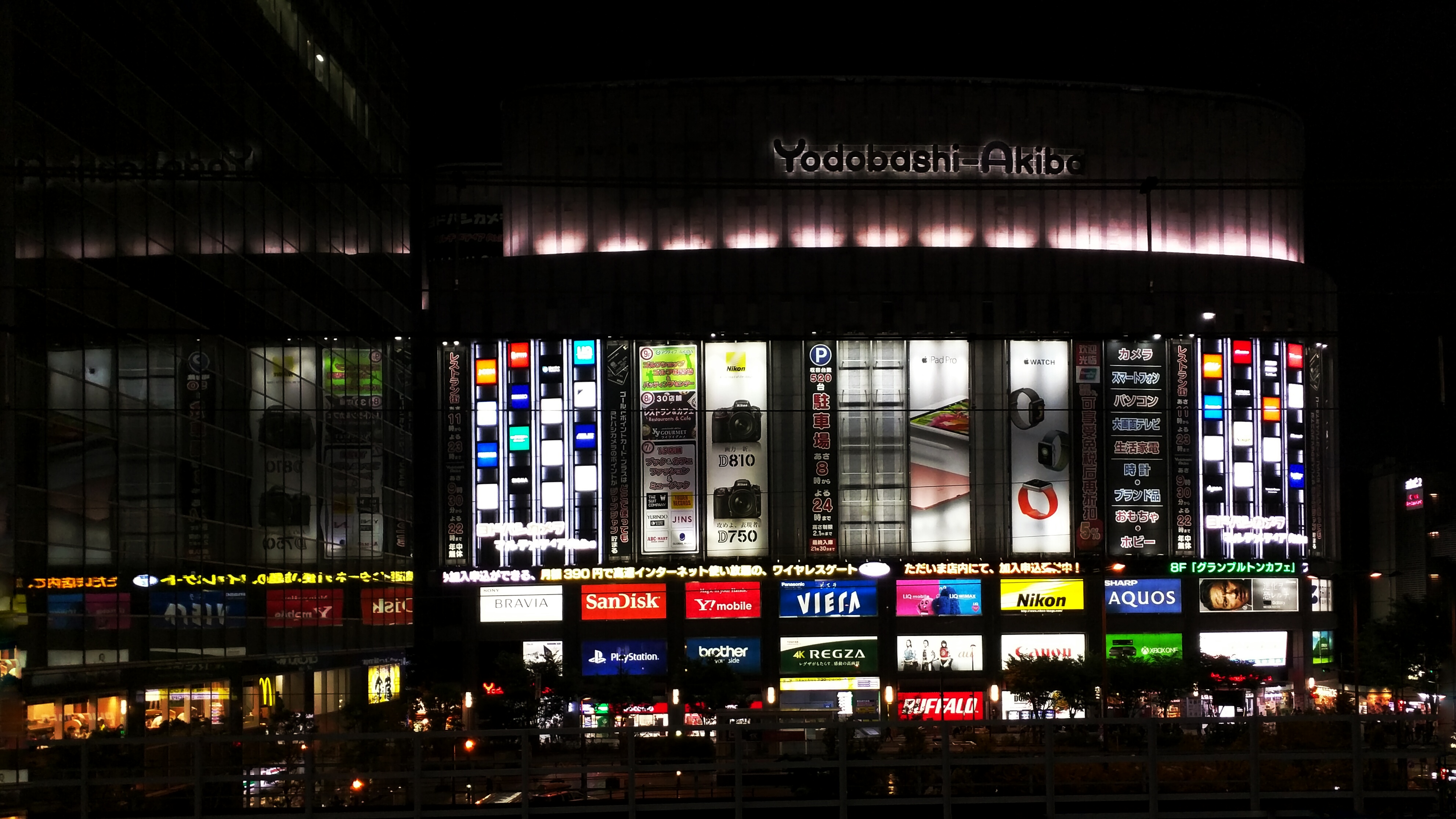
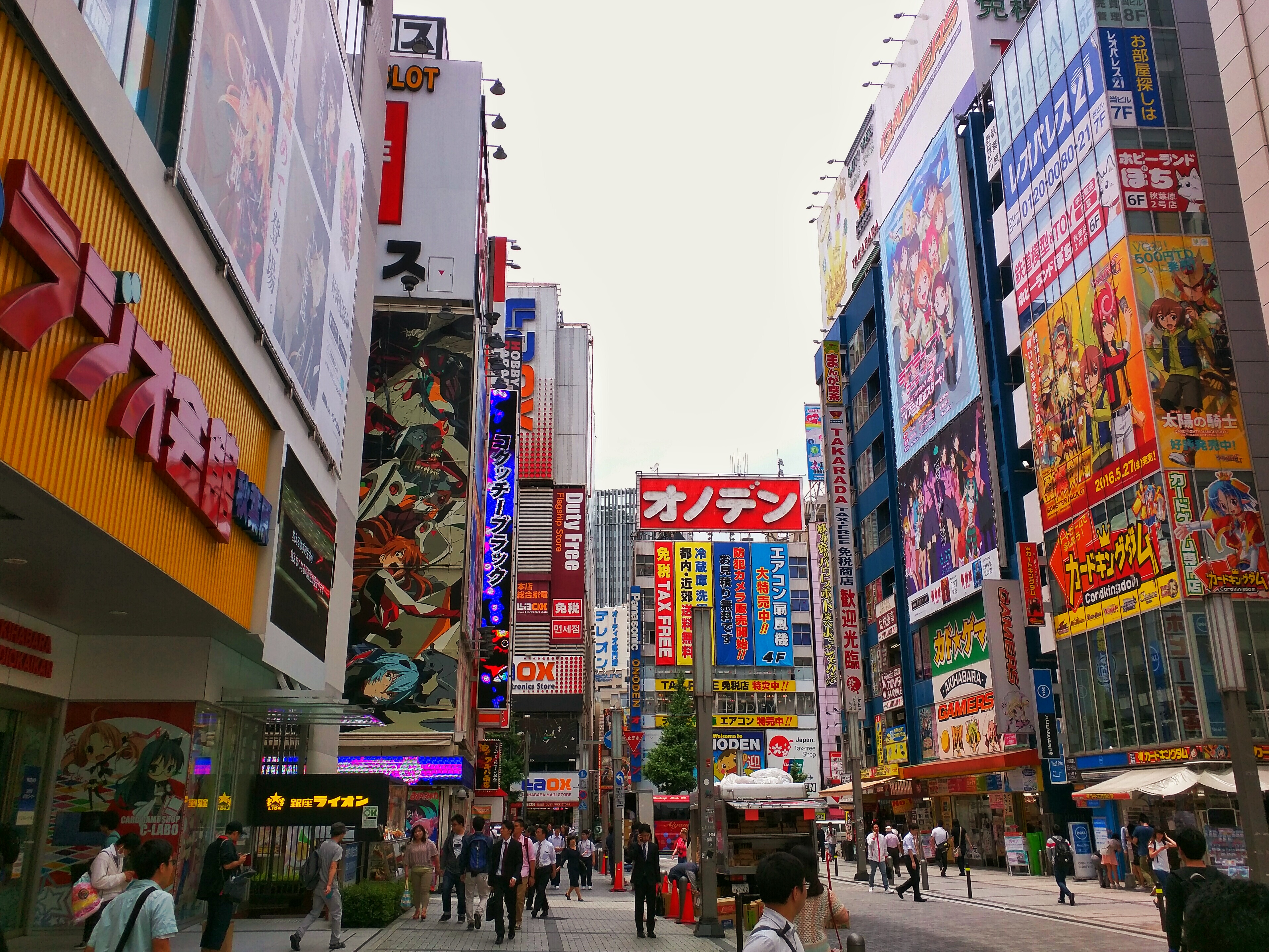
Women whose ages I could not determine, but seemed to me like school girls, stood on the streets in maid-like outfits inviting people on the streets into their maid cafes. Cafes where they, the young-looking girls, treat the customers not as plain customers but as their masters. The concept seems interesting at first, but it quickly goes from interesting to disturbing when you see the girls soliciting on the streets. I would have expected that people would find this to be an exotic concept that may try once and as a result the cafes would be rare. But no, the patronage indicates that one too many people want to be served by cosplaying maids and so there are maid cafes in Akihabara nearly in every block.
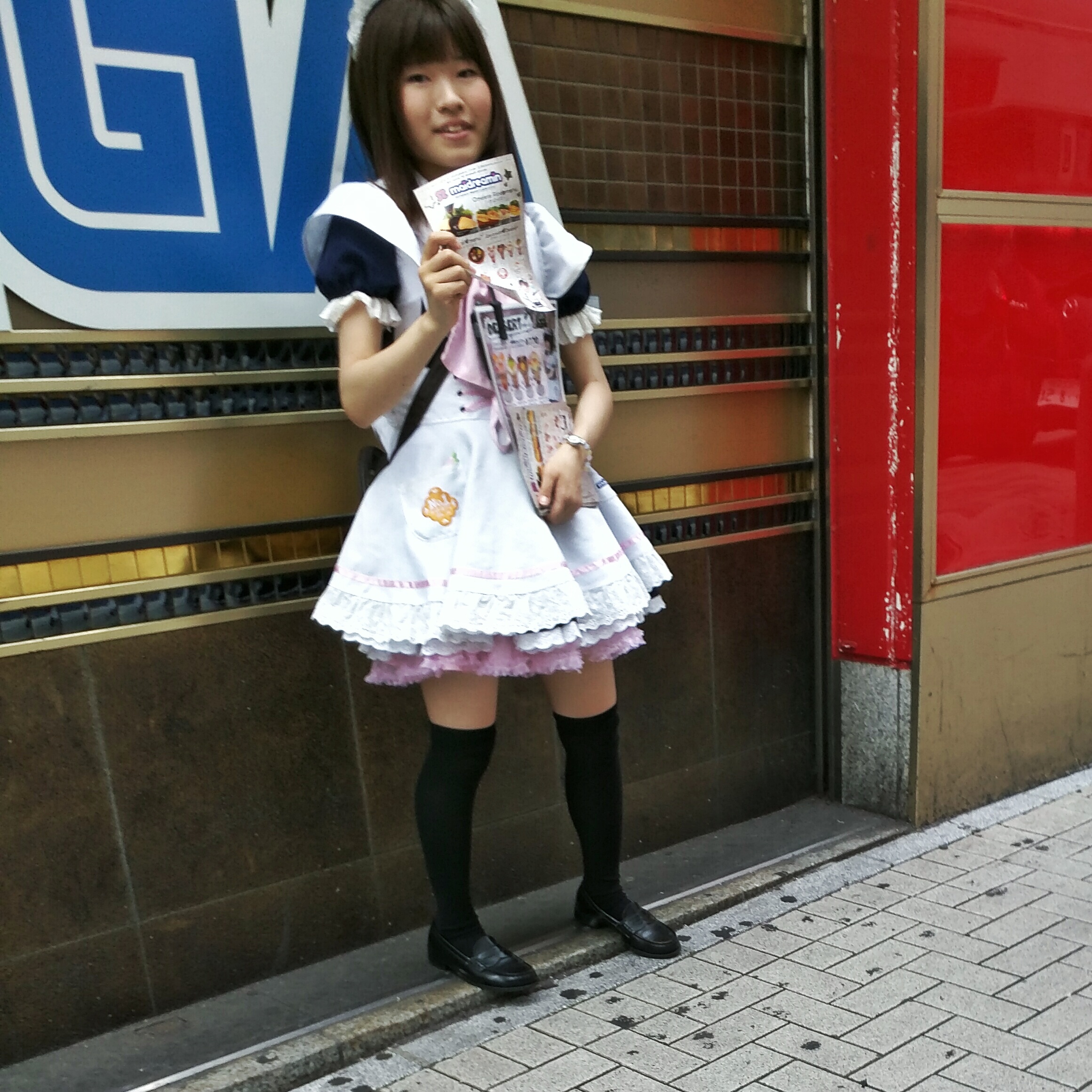
Men in black suits and pants carrying leather messenger bags casually stroll into Manga stores here. They look forlorn in their monotone clothes and detached demeanour. They come alone, maybe on their way back from a long day at work, and pick out no less than 5 volumes of Manga comics at the store; much like buying tomatoes from a grocery store on the way back home.
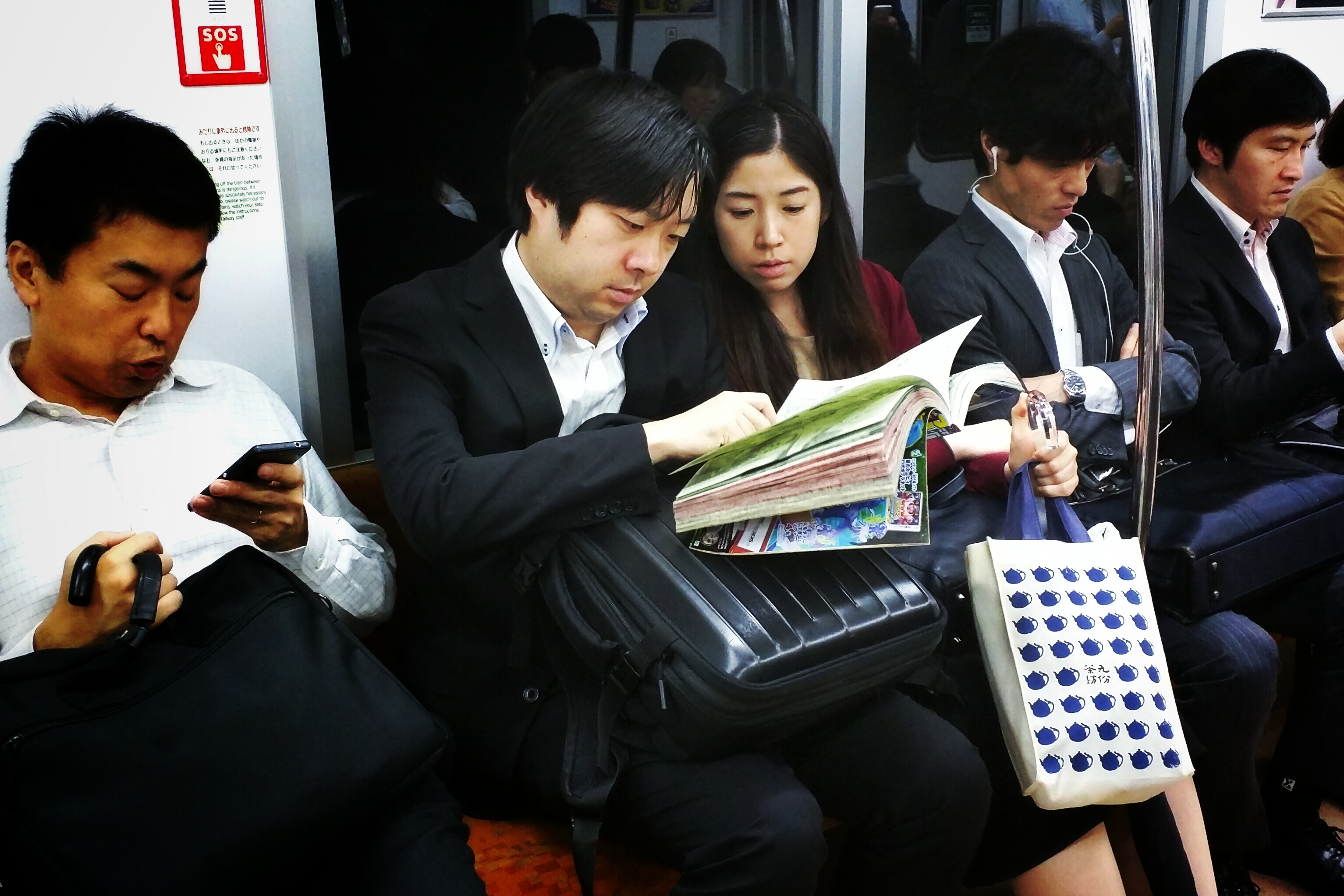
These very men walk into standing sushi bars, or hole-in-the-wall ramen noodle stalls alone for lunch. They step in, take a sip of the green matcha tea order the usual deal, eat and leave. It is not surprising then that in ramen noodle stalls that I visited in Tokyo most of the tables were meant to seat just one.
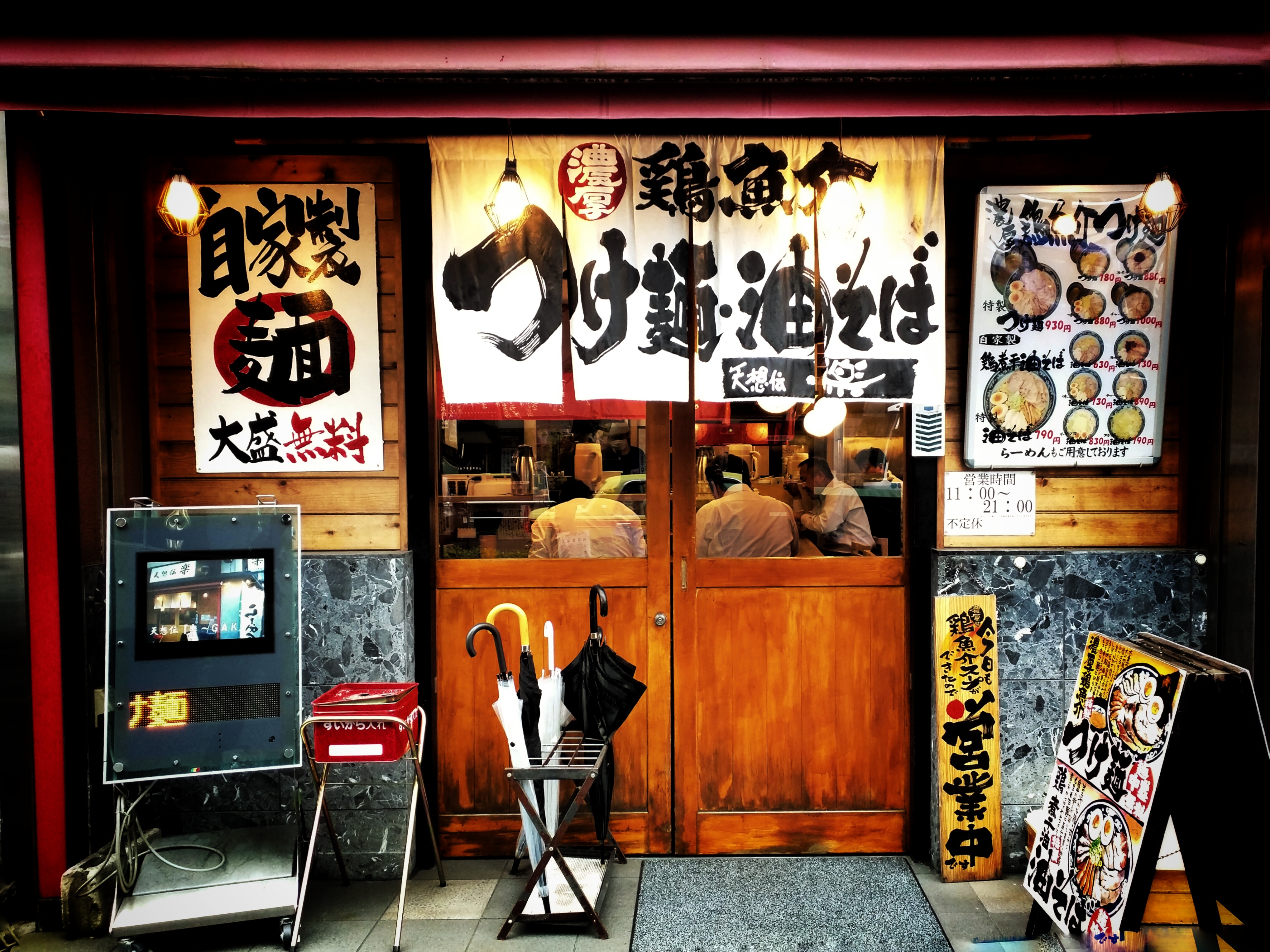
Akiba was disturbing, yet fascinating – fascinating like the rest of Japan. The politeness on the part of the Japanese crushed me. On my very first train ride, as I stood oblivious to the Metro’s doors opening behind me, passengers converged on me and did not request that I move. They simply waited for me to realise that I was blocking their way and move away from the door. I shudder to imagine how I would have felt had I not realised that I was in their way.
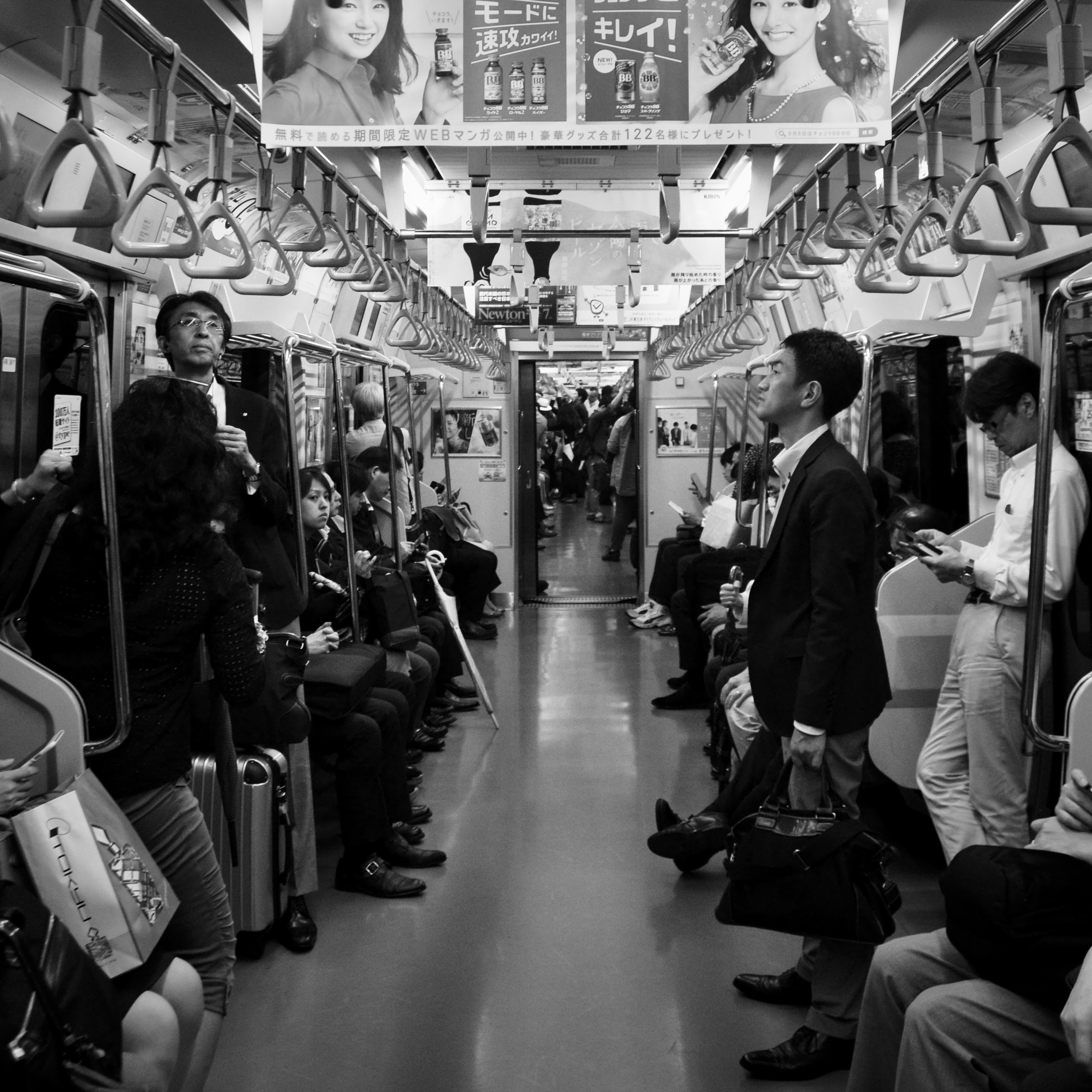
The number of instances when I felt socially inept in Japan were too many to count. I can only hope that the Japanese people forgave me for my inappropriate behaviour such as eating say a croissant while I walked on the pavement, peering into my phone looking for directions as I walked (instead of moving aside and standing while I looking into my phone). Oh, and that time two friends and I were the only ones chatting inside a train. Should I go on? Maybe not.
Akiba represented the eccentricities of Tokyo while keeping the politeness quotient of Japan intact. Staying in Akihabara was an accident but I’m glad I did because I saw the Tokyo I needed to see.
A very interesting read; it portrays quite a different image of Japan than what I had in mind as well!